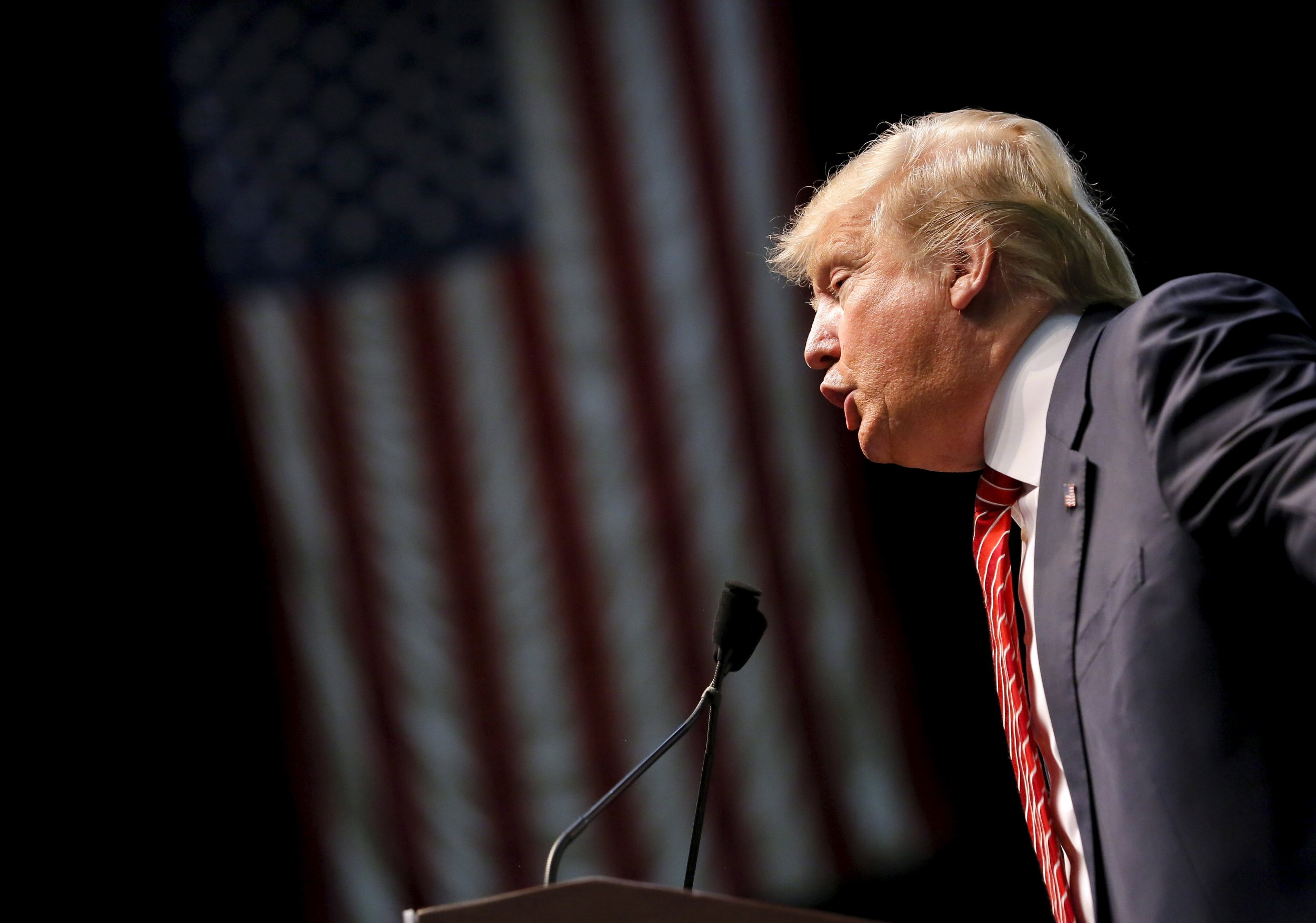
Donald Trump would face huge resistance at the CIA if he were elected president and ordered the spy agency to resume waterboarding—or "worse," as the Republican candidate has repeatedly pledged.
John Rizzo, who was a top CIA lawyer during the time the agency used "enhanced interrogation techniques," or EITs, on prisoners, predicts CIA officials would rather resign than obey orders to revert to "hard measures" like waterboarding and beatings.
"I think certainly many of those who were connected to the EIT program over its six years' span—and hundreds are still there—would resign or retire rather than have to go down that perilous road again," Rizzo tells Newsweek. "Who could blame them?"
Trump, the leading Republican candidate after his presidential primary victory in New Hampshire, has repeatedly pledged to reinstate waterboarding and "a hell of a lot worse" if he wins the presidency.
"It works, OK?" the New York real estate mogul has claimed. "It works. Only a stupid person would say it doesn't work." Even if it doesn't work, he said in November, it should be used because terrorist suspects "deserve it anyway, for what they're doing."
The issue of waterboarding's effectiveness—not to mention whether it amounts to torture—has been hotly debated for years. Former CIA and FBI interrogators have said publicly that such measures not only violate Geneva Convention prohibitions on torture, but are not as effective in the long run as breaking down prisoners with other techniques. Frazier Thompson, who heads the federal unit that interrogates key terrorism suspects, added his voice to that message this week, telling NPR that "rapport-based techniques elicit the most credible information."
No less than John Yoo, one of the George W. Bush administration officials who wrote legal memoranda green-lighting harsh measures, said this week that Trump completely misunderstood their use.
"I'm afraid Mr. Trump thinks of waterboarding, or worse, as a kind of punishment, like a sentence [or] revenge or reprisals," he told Fox News on Tuesday. "That's not what its purpose is. The purpose of it is not to take revenge for past acts. It's to figure out what to do now to get intelligence to stop future attacks."
After revelations surfaced a decade ago that the CIA was using such rough techniques on prisoners in secret sites around the world, the agency was embroiled in a years-long global uproar and a controversial Senate Intelligence Committee investigation.
It was such an ordeal for the CIA that one of its former chiefs, General Michael Hayden, declared recently that the agency would never do it again. Likewise, the nation's current top spy official, Director of National Intelligence James Clapper, said this week that the CIA should stick with the stricter Army Field Manual on interrogations, because it "comports with American values."
"If some future president is going to decide to waterboard, he'd better bring his own bucket, because he's going to have to do it himself," Hayden said last November in an ABC TV documentary, The Spymasters.
"I agree with Mike," says Rizzo, who recounted the agency's turmoil over waterboarding and other issues in a 2014 memoir, Company Man: Thirty Years of Controversy and Crisis in the CIA.
And woe to the CIA director, Rizzo added, who gets orders to resume waterboarding "or worse" from a President Trump.
"I pity the poor SOB who is President Trump's CIA director and gets the order to do interrogation techniques 'worse' than waterboarding," Rizzo said, "not to mention the CIA general counsel or Justice Department attorney general who has the legal issue dropped in his or her lap."
If they don't resign, the former general counsel suggested, they'd better get ready for a world of hurt in the media and the courts and on Capitol Hill.
Uncommon Knowledge
Newsweek is committed to challenging conventional wisdom and finding connections in the search for common ground.
Newsweek is committed to challenging conventional wisdom and finding connections in the search for common ground.
About the writer
To read how Newsweek uses AI as a newsroom tool, Click here.








